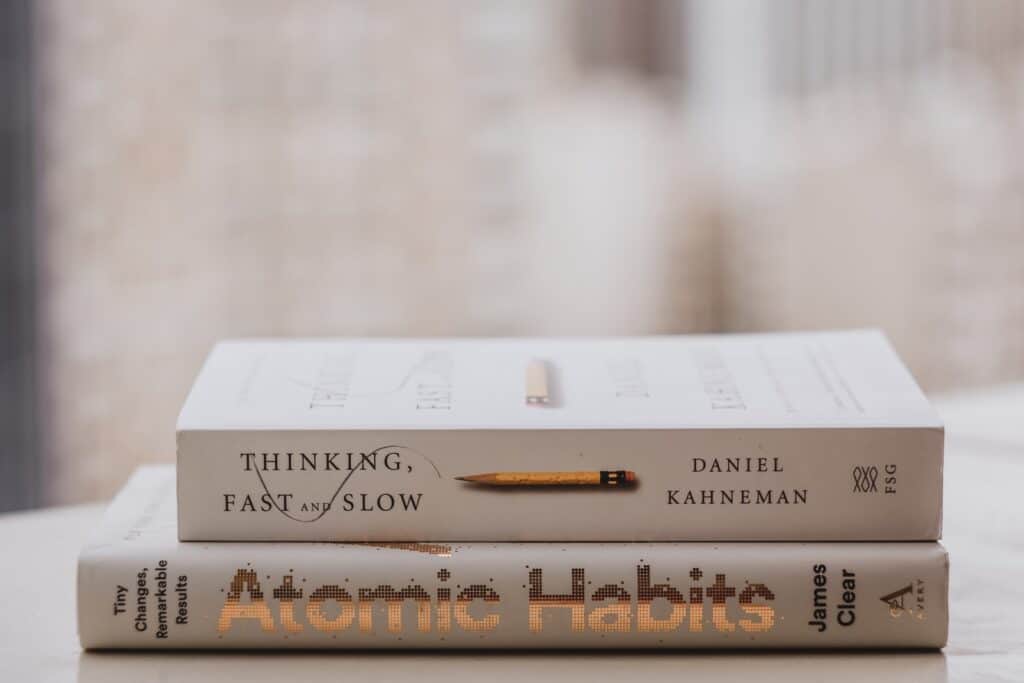5 Secrets To Create A Killer Morning Routine
5 Secrets To Create A Killer Morning Routine
I’ve tried many times in my life more than I can count to develop a morning routine for success.
I would read tons of blog posts about waking up at 5am for success and the morning routines of well-known entrepreneurs. At one point, I was able to get up at 5am for about ten days (I tried guys haha) straight, but then I started back to ground zero.
My morning routine was inconsistent, and the biggest struggle for me was feeling that I didn’t have enough time in the mornings to do what I wanted. But through trial-and-error, I found out what worked and what didn’t.
As a result, I’ve developed a morning routine that sets my day up for success and productivity. It’s honestly a great feeling to wake up feeling ready to start my day without any stress, anxiety, or feeling of being rushed.
Obviously not everyday is perfect and there are some days when my body needs more rest or it’s that time of the month and the last thing I want to do is workout. With that said, I want to point out that it’s also important to listen to your body cues when you feel physically and mentally burnt out!
In this post, I’ll share with you five effective tips that will teach you exactly how to create your own killer morning routine. First, let’s start with why an effective morning routine matters.
Why an Effective Morning Routine Matters
According to research, Harvard professor Christopher Randler surveyed hundreds of college undergraduates to determine what time of day they were most proactive. Most of these students found that they were more proactive in the morning compared to evenings.
In a podcast episode about our brain’s ideal schedule, Ron Friendman, discussed that because we’re the most awake the first three hours of our day, we really need to leverage that time. He goes on to say that if we end up using those three hours to put other people’s priorities first such as checking our emails, then we’re wasting our best hours to be productive.
If you can develop an effective morning routine, you’ll prepare yourself mentally and physically for the rest of the day. Any routine, in general, helps keep you on course and steered away from distractions.
Not only that, but your productive levels will increase and stress levels will decrease. When you set aside time to your morning routine, you won’t feel like rushing through your day with a cluttered mind. You also can beat peak hours in traffic if you start your day earlier.
I’m sure we can all agree that being caught in traffic rush hours on your way to work is stressful. This study has shown that the effects of commuting can have an impact on stress levels for workers.
Sometimes long commutes are inevitable, but if you can protect your mornings well, then you won’t be as reactive towards seemingly “negative” situations that come up during your day.
With that all to say, your morning routine matters. If you can carve out the first hour of your day to your morning routine, then you’re on your way to living a more productive, balanced life.
1. Determine the “why” behind your morning routine
This is the foundation of creating an effective morning routine.
There needs to be a purpose behind an intentional start to your day.
Why?
Because let’s say you decide to start waking up at 5 am in the mornings. You’ve been pretty consistent for 5 days and then all of a sudden you start to sleep late, which has been affecting your mood in the mornings. You decide you want to start sleeping in to catch up on sleep and before you know it, your 5am morning alarms have become 8am wake up calls. And you’re back to where you started. If you don’t know why you’re waking up so early, it’s more likely you’ll start to get fatigued and want to quit.

It’s easy to start a healthy habit or a routine, but to commit to it?
That’s a whole other thing.
And the best way to commit to what you started is knowing your WHY. So ask yourself, why do you want to commit to a daily morning routine?
First, know what you hope to gain from developing a morning routine. Maybe you want to start a side hustle, not feel so rushed to get to work, start a new project, exercise earlier to feel more energized, or have more time to yourself before the grind of your day.
Then, reflect on why you want to do these things. Maybe exercising earlier to feel more energized will make you feel less stressed during work, improve your relationships, and increase your productivity levels?
Next, write down your reasons and put them somewhere you can clearly remind yourself everyday. For example, you can write them down on a sticky note and paste them on your wall or create a phone screen wallpaper to remind yourself every time you turn on your phone.
2. Experiment with what you want to incorporate into your morning routine
Once you know your WHY behind your morning routine, I’d encourage you to pick 1-2 habits you want to incorporate into your morning routine. The key is to start small rather than trying to create a perfect morning routine from the start. You’re more likely to feel overwhelmed and end up quitting.

Here are a list of ideas to get you started with building your morning routine:
- Make your bed
- Skip your snooze button
- Take a cold shower
- Meditate
- Go on a walk
- Exercise
- Journal
- Drink a glass of lemon water
- Eat a nutritious breakfast
- Practice gratitude
- Read for 15 minutes
- Set 3 priorities for the day
This leads me to my next point…
3. Start small (advice from a recovering perfectionist)
I can’t emphasize this tip enough. A huge reason why I struggled to commit to a morning routine was my tendency to do too many things at once. I admired the morning routines of successful CEOs and entrepreneurs, which made me want to wake up at 5am, take a cold shower, meditate, read, and journal.
That lasted for about ten days and I gave up because I didn’t have a strong reason of why I wanted to wake up at 5am. At the time, I just thought it was what successful people did, so I did it (lol now I know).

Lesson to takeaway: Don’t set your expectations for a daily morning routine way too high that you end up setting yourself up for failure.
If you’ve been waking up at 8am and you want to start waking up at 6am, start small. Start with a goal to wake up each week earlier by 30-minute increments, so this is what it’d look like:
- Week 1: set alarm for 7:30
- Week 2: set alarm for 7:00
- Week 3: set alarm for 6:30
- Week 4: set alarm for 6:00
I know it might be tempting to set your alarm earlier every day, but force yourself to do this every week instead.
Follow tip #2 and pick only 1-2 things first. After 4 weeks, you can pick another habit on your list and incorporate it into your routine. Resist the urge to do more.
Less is more.
4. Create a balance in your morning routine
How do you create balance in your morning routine?
When you start small with building your own morning routine, I’d suggest choosing one habit under each specific elements for your ideal routine. These elements involve your spiritual, mental, and physical state.
Here’s an example:
Spiritual: read the Bible, pray, meditate, be in nature, etc.
Mental: Make your bed, read, take a cold shower, set 3 priorities for the day, etc.
Physical: go on a walk, go the gym, stretch, drink a glass of water, etc.

It’s also important to note buffer time, meaning having time in between each habit/task. Buffer time should be at least 5-10 minutes. For example, if you are going out for a walk and you want to read when you come back, it takes time in between to walk from your door back to your room and settle down to read.
Earlier I had mentioned to choose only 1-2 habits when building your morning routine. Since there are three elements, I’d recommend choosing 1 habit from any element or 2 habits from 2 different elements.
So, perhaps you want to start off with reading the Bible (spiritual) for 10 minutes and making your bed (mental).
A balanced morning routine looks like choosing one small thing from an area of your life that can have a lasting impact.
5. Be consistent
Believe it or not, the most important not-so-secret to a successful morning routine is consistency.
If you’ve ever wondered how a successful entrepreneur can be so productive throughout their day, take a look at how they spend their mornings. Even the most successful CEOs had to experiment with their morning routines to figure out what worked and didn’t work for them. But what sets them apart is their ability to be consistent with their routines.
So the big question is, how long does it take to build an effective morning routine that it becomes ingrained in your daily life?
Just like any habit, it may take on average about 66 days, not 21 days. James Clear, author of author of the #1 New York Times bestseller, Atomic Habits, debunks the myth that it takes 21 days to form a habit. When in reality, research has shown that it takes about 2 months for habits to be formed.

So what does this mean? It means that if you want to develop an effective morning routine, you need to keep going and be consistent.
This is where self-discipline trumps motivation because there will be days when you might want to skip your morning routine altogether and just sleep in.
But if you can remind yourself of your WHY and choose to be committed, you won’t regret it.
To help yourself stay committed, find ways to practice accountability. Download a habit tracking app or reward yourself after the end of every week.
Set a reminder to check in with yourself in the middle of the week. Reflect on your WHY at the end of every week if you find yourself wanting to give up.
Don’t give up.
And as a recovering perfectionist, I know how it feels to miss a day. If I slept through my alarm, got sick, or skipped a part of my morning routine, I’d feel like a failure. But on those days, I would remind myself that I’m human and it’s okay if life happens or I don’t do what I wanted to do.
If you find yourself “failing” or struggling to be consistent, give yourself compassion. Tell yourself, “This is hard for me. A lot of people feel this way. May I be kind to myself in this moment.” Acknowledge how you feel and start again the following day. It doesn’t have to be black-and-white. You have the power and strength to keep going, so don’t give up.
Conclusion
The key to establishing a morning routine is consistency. Building a morning routine is a challenge, but it’s so worth it in the long-run.
To round it all up, here are 5 secrets to create a killer morning routine:
- Determine the “why” behind your morning routine: When you lack motivation and energy, this is what will keep you gong.
- Experiment with what you want to incorporate into your morning routine: choose 1-2 habits you want to implement and determine why you chose them.
- Start small: be realistic with your morning routine and set achievable goals.
- Create a balance in your morning routine: Choose a healthy habit from an element of your life: spiritual, mental, and physical.
- Be consistent: Self-discipline over motivation always wins. It’s not about perfection, but doing your best to be consistent.







